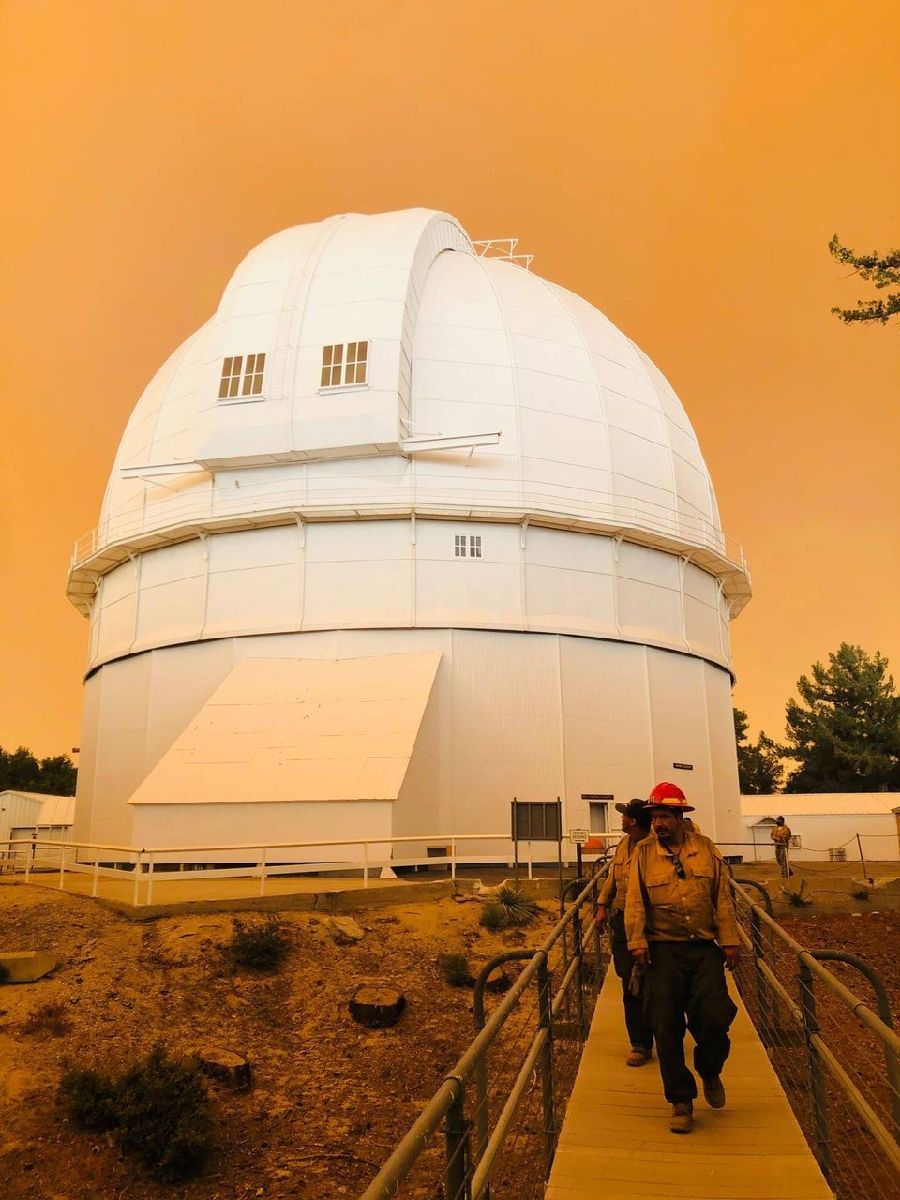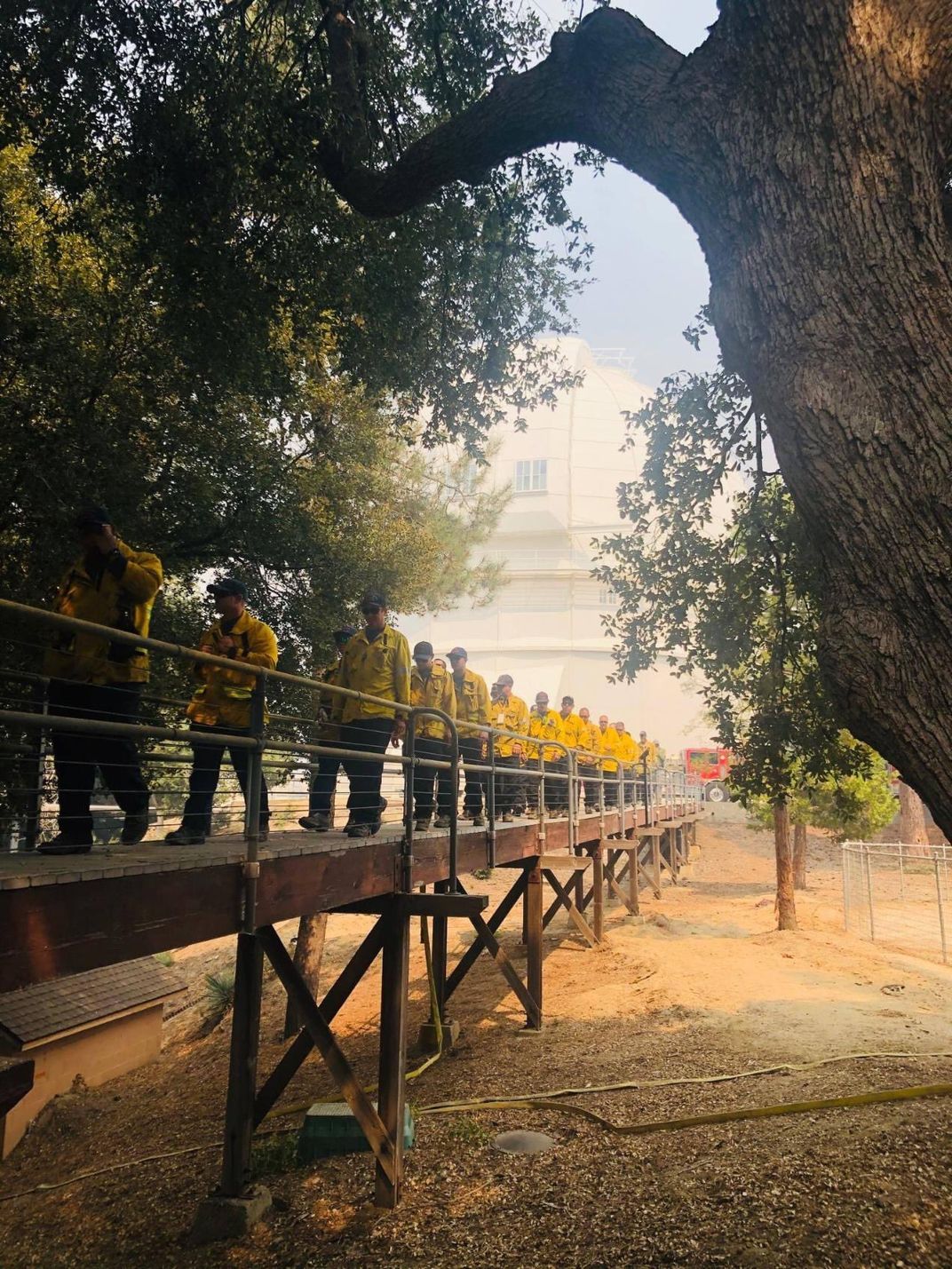Historic Mount Wilson Observatory Threatened by Bobcat Fire in Los Angeles
Although the immediate danger seems to have passed, the fight to battle the flames threatening the historic observatory continues
/https://tf-cmsv2-smithsonianmag-media.s3.amazonaws.com/filer/54/77/5477fd1d-b39f-4cf0-a24a-6b2965874c32/eiu1tewvoaalwws.jpeg)
The Bobcat Fire in California, one of the many raging along the West Coast right now, may be one of the biggest in of the biggest in Los Angeles’ history. It ignited on September 6 and has engulfed more than 113,307 acres, displacing an estimated 4,000 people, as Hayley Smith and Louis Sahagun report for the Los Angeles Times.
For the last week, the blaze has also threatened the Mount Wilson Observatory, the historic 116-year-old research center that sits on a mountain ridge overlooking Pasadena, California.
Now, as the observatory said on Twitter late Tuesday evening, the fire containment measures seem to have held. But the weeks-long fight to save the historic research center has been touch-and-go at times, reports the Los Angeles Times.
As Dennis Overbye reports for the New York Times, Mount Wilson was the most important site for studying the cosmos in the first half of the 20th century. Founded in 1904 by George Ellery Hale, it was there that Harlow Shapley, Edwin Hubble and Milton Humason conducted research that led to the discovery that our universe is expanding.
When the observatory was founded, its dry, isolated air gave astronomers a clear view of the night sky. But as nearby Los Angeles grew, so did the light pollution. By the 1980s, the Observatory’s two telescopes were left mostly unused, as scientists instead flock to new telescopes in Hawai’i and Chile, reports Jacob Margolis for LAist.
The #BobcatFire containment line, defined by yesterday's strategic burn to the north and west of the observatory, held overnight. This process may continue even further to the west today. pic.twitter.com/rMPKb7ZaYZ
— Mount Wilson Observatory (@MtWilsonObs) September 22, 2020
When the fire began to rage this month, scientists and administrators evacuated the research center. They watched the fires’ progress from live webcams that overlook the many buildings and radio towers onsite, reports Doris Elin Urrutia for Space.com.
At one particularly tense moment, the fire came within 500 feet of the Observatory, reports Laurel Wamsley for NPR.
On the evening of September 17, timelapse video showed a wall of fire that seemed to engulf the southern edge of the property, as Observatory Chairman Sam Hale noted in a September 18 letter. The scientists later learned that these flames were the result of “strategic firing,” where firefighters attempt to direct flames to control their impact, he adds.
“We will be forever thankful for the 12 crews, some forty to fifty firefighters from all over, who defended our home, risking their lives defending our scientific treasure,” Hale wrote. “We are still not completely out of the woods, so the crews will stay on the mountaintop to the end of the month or longer to protect the site from flair ups.”
Later that week, it seemed that the observatory might be in the clear, per the New York Times. “It looks very good,” Dan Kohne, a trustee of the Mount Wilson Institute, told the New York Times in an email Friday morning. “The Observatory has been declared safe.”
But the following Monday, the Los Angeles Times reported that fires had once again flared up near the top of the mountain.
“Just when I thought the danger was over—it wasn’t,” Thomas Meneghini, the observatory’s executive director, told the Los Angeles Times Monday. “As I was leaving [Sunday], eight more strike units were rumbling up the road.”
So far, firefighters have emptied half of a 530,000-gallon water tank onto the observatory in their efforts to keep flames at bay, Meneghini tells the Los Angeles Times.
As of Wednesday morning, the Bobcat Fire was at 38 percent containment, the Angeles National Forest reports.
“It’s not over yet,” Rebecca Oppenheimer, curator of astronomy at the American Museum of Natural History, said to the astronomy community last week in a note obtained by the New York Times. “Fingers crossed, but the smoke damage has to be horrific already, even if this fire business goes away.”
/https://tf-cmsv2-smithsonianmag-media.s3.amazonaws.com/accounts/headshot/nora.png)


/https://tf-cmsv2-smithsonianmag-media.s3.amazonaws.com/accounts/headshot/nora.png)